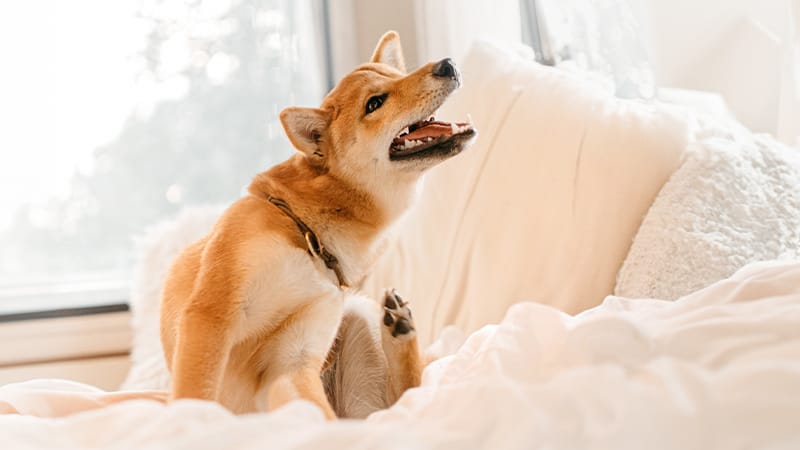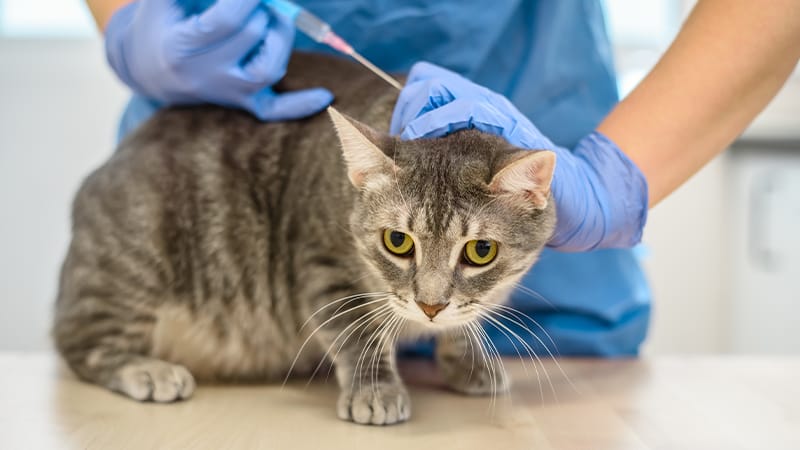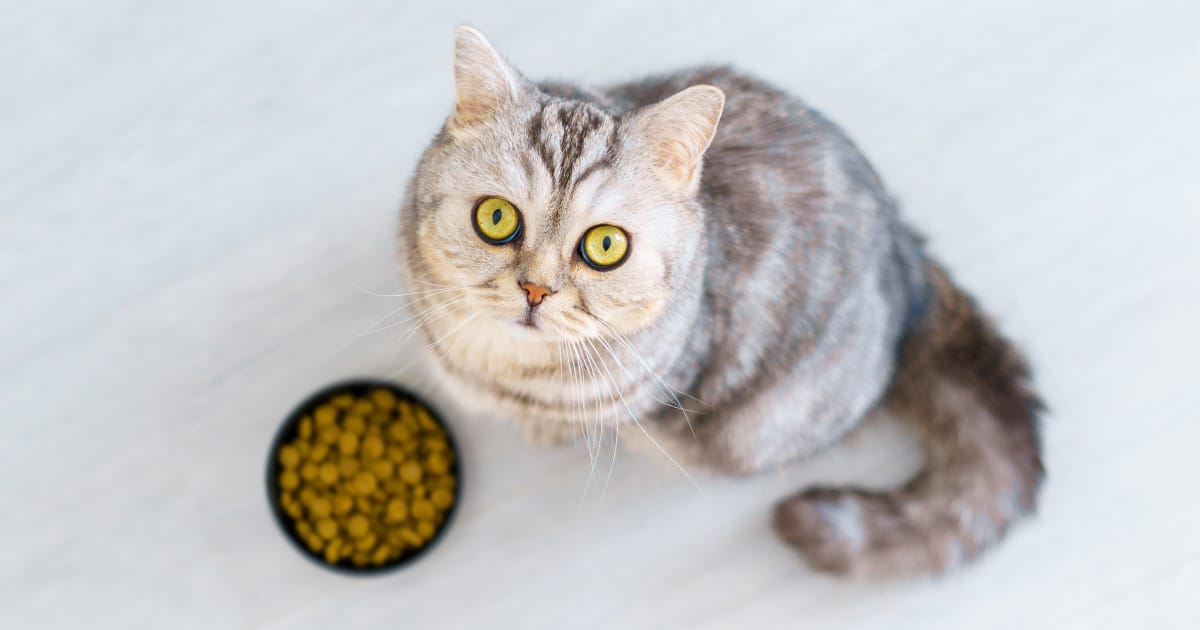House Dust Mite Allergies in Dogs and Cats: Signs, Prevention, and Treatment
House dust mites feed on skin dander and hair, irritating our pets. Learn more about dust mites and how to address them.
Dust mites, which are invisible to the naked eye, secrete an allergen that can cause allergy signs in both pets and humans, especially those with atopic dermatitis who are sensitized to their secretions. These mites thrive on shed animal and human skin scales and hair. They are present worldwide and can cause allergy signs any season of the year.
While the mites themselves are not significant, it’s the allergen they produce that becomes part of the dust that triggers allergy signs in animals and humans. Unfortunately, completely eliminating this allergen from the environment is not possible. However, there are strategies you can implement to reduce its presence in your home. Treatment of the pet is recommended, to reduce the allergen load below the concentration that would not, theoretically, trigger signs.
Our MedVet Dermatology team is sharing the signs of house dust mite hypersensitivity in cats and dogs, treatment, and what you can do at home to minimize house dust mites.
What are Dust Mite Allergies in Dogs and Cats?
Dust mites, along with the allergen they produce, can be found in various places such as beds, mattresses, carpets, sofas, and pet bedding. They are too small for us to see and thrive in warm and humid environments. While they don’t bite, sting, or burrow into skin, they leave behind their feces, urine, and decaying bodies. It is this “debris” that eventually turns into dust and contains the allergen that is percutaneously (through the skin) absorbed. When the skin’s immune system is exposed to this allergen, some individuals may become sensitized, leading to the development of clinical signs of atopic dermatitis.
Signs of Dust Mite Allergies in Pets
Dogs that suffer from house dust mite hypersensitivity often experience itching. The itchiness commonly affects areas such as the ears, face, paws, axillae (armpit), and aventrum (groin area). Itching can be a sign of other allergic other skin conditions, such as flea allergy or cutaneous adverse food reaction (food allergy). Additionally, dogs with house dust mite sensitivity may develop secondary skin or ear infections.

How Are Dust Mite Hypersensitivity Diagnosed?
Dogs with atopic dermatitis can be diagnosed with house dust mite hypersensitivity through allergy testing. If your primary care veterinarian suspects this condition, they may refer you to a veterinary dermatologist for further discussion on managing atopic dermatitis.
If the proposed treatment plan includes allergen specific immunotherapy (allergy vaccine), the veterinary dermatologist may recommend tests to determine which specific house dust mites (and other allergens) your pet is sensitized to. These tests can be done through serum or intradermal testing. The serum test involves a blood sample, while the intradermal test is typicallyperformed by a veterinary dermatologist. It involves shaving a small patch of fur and pricking the skin with individual allergens. If your dog is sensitized to an allergen, a wheal response (red, raised area) will be observed.
Treating Dust Mite Hypersensitivity in Dogs and Cats
After your pet has been diagnosed with atopic dermatitis, your veterinarian will create a treatment plan to manage the condition. The primary treatment for atopic dermatitis caused by house dust mite hypersensitivity is allergen specific immunotherapy. However, to alleviate signs, medications can be used. They may include Atopica (modified cyclosporine), Apoquel (oclacitinib), Cytopoint (lokivetmab), glucocorticoids like prednisone, and others.
In addition to medication, there are other aspects of treatment to consider. Controlling secondary infections is important, and this can be done through topical therapies and systemic options when necessary. Flea/tick preventatives are also important. Supporting the epidermal barrier is another part of the treatment plan, and your veterinarian may recommend special shampoos or topical treatments to soothe your pet’s skin and prevent secondary infections caused by excessive scratching.
Lastly, immunotherapy can also be administered to gradually desensitize your pet to house dust mites. This can be done through allergy shots or drops, similar to those used in humans. Immunotherapy aims to reduce the severity of allergic reactions over time.

How to Control Dust Mites at Home
It is not possible to completely eliminate house dust mite allergens from the environment, but there are steps you can take to temporarily reduce their concentration in your home. Here are eight recommendations:
- Maintain a Clean Environment: Regularly vacuum or sweep and wet mop floors to control dust.
- Pet Bedding: Use synthetic material in pet bedding and avoid feathers, wool, horsehair stuffing, and cedar shavings. Wash the bedding frequently in hot water, replacing dog beds annually.
- Control Humidity: Dust mites thrive in high humidity environments. Use air conditioning and dehumidifiers to maintain humidity levels between 30-50%.
- Minimize Carpeting: If possible, choose bare floors like hardwood, vinyl, or tile. If carpeting is necessary, opt for a low pile option and steam clean it regularly.
- Use Allergen-Proof Covers: Encase pillows, mattresses, and box springs in airtight plastic covers. Washable blankets and mattress pads are recommended.
- Grooming: Regularly groom your pet to minimize shedding and dander.
- Air Filtration: Change furnace and air conditioning filters frequently and consider using electrostatic filters.
- Consult a Veterinary Dermatologist: If your pet’s allergies are severe or not responding to conventional treatments, consider seeking the expertise of a veterinary dermatologist who specializes in skin conditions. They can provide specialized guidance and treatment options.
With proper care and management, you can help manage your pet’s dust mite hypersensitivity and improve their quality of life.
Learn more about dermatology veterinary care.
FAQs
Contents



